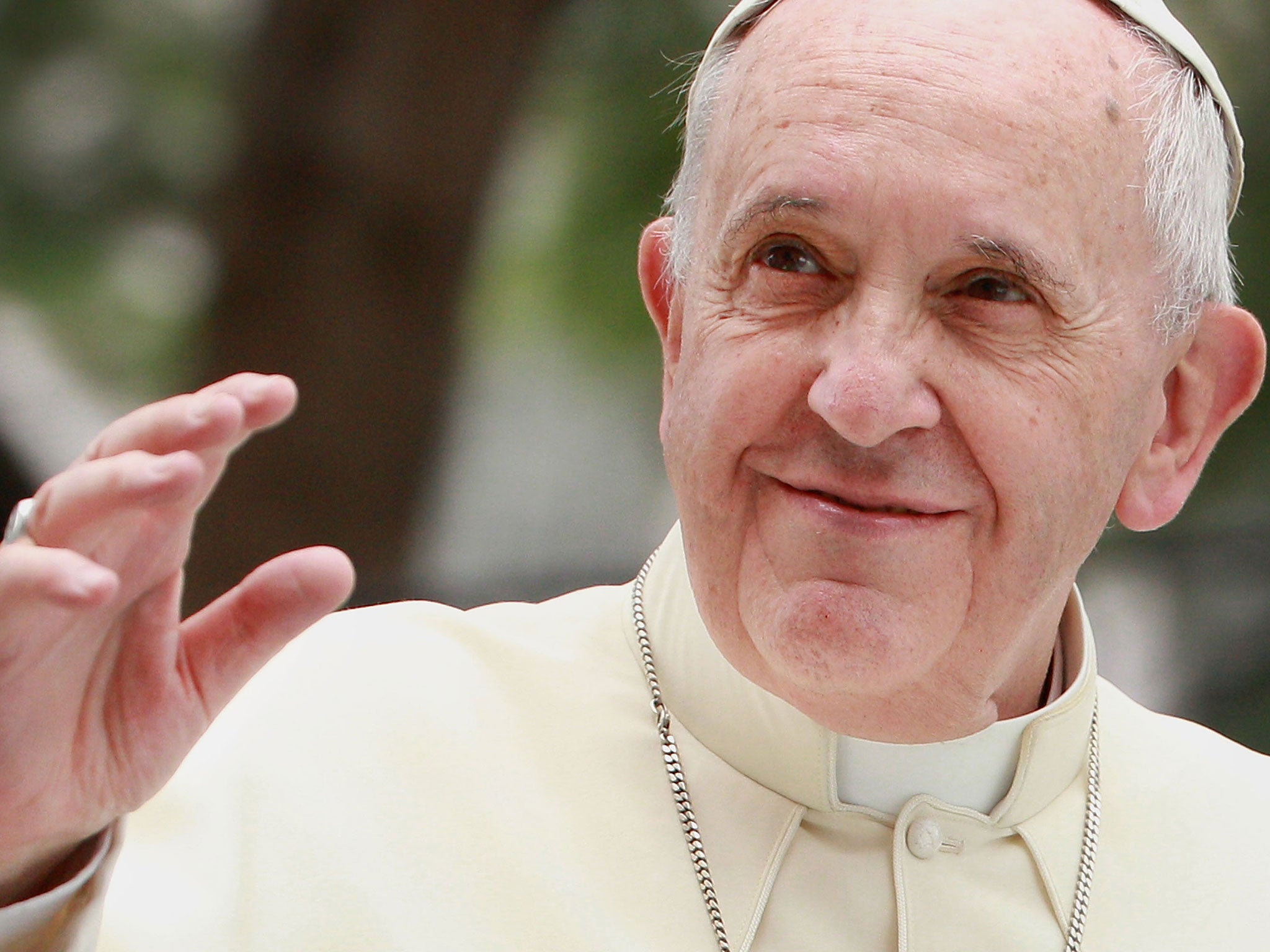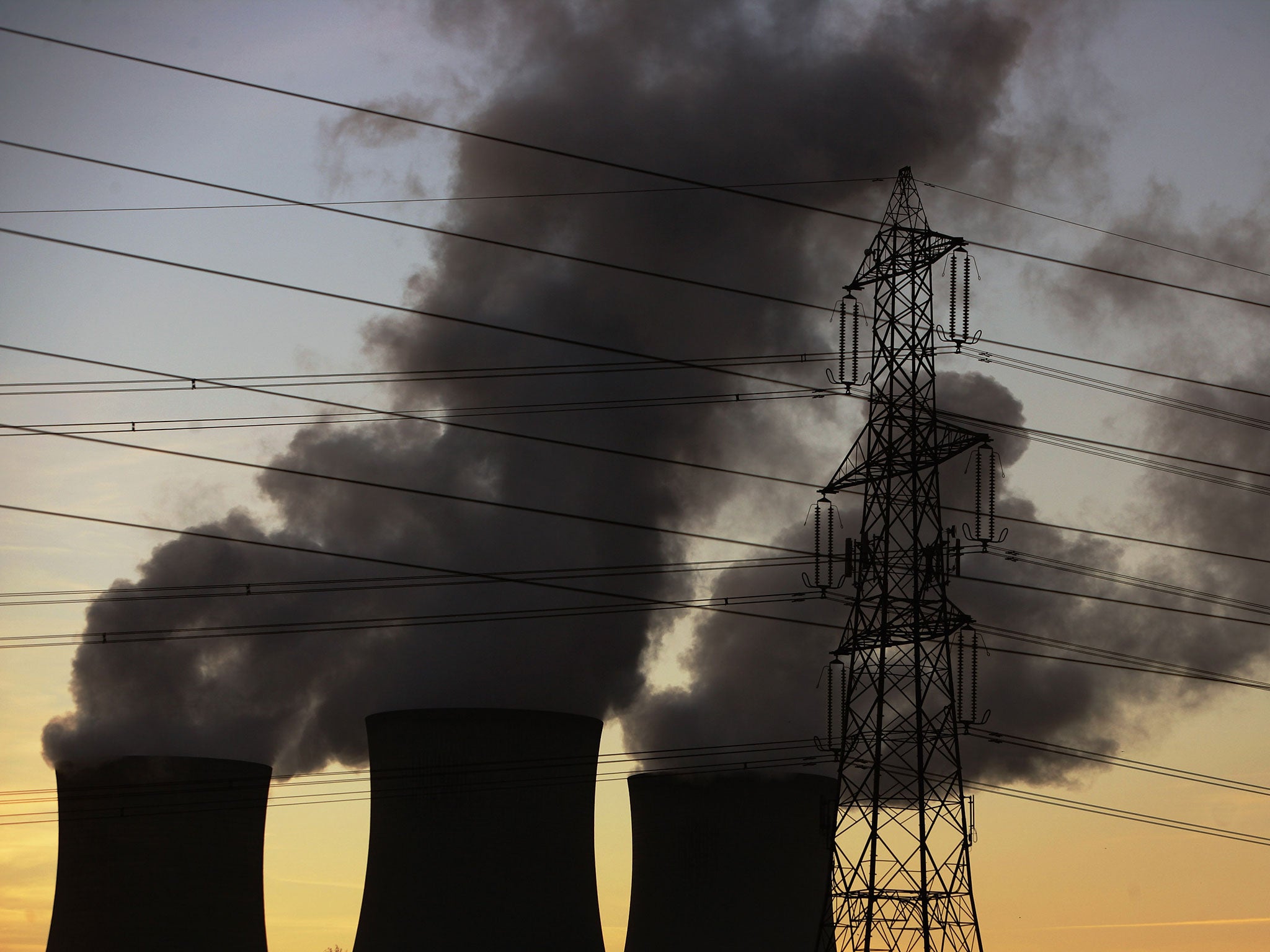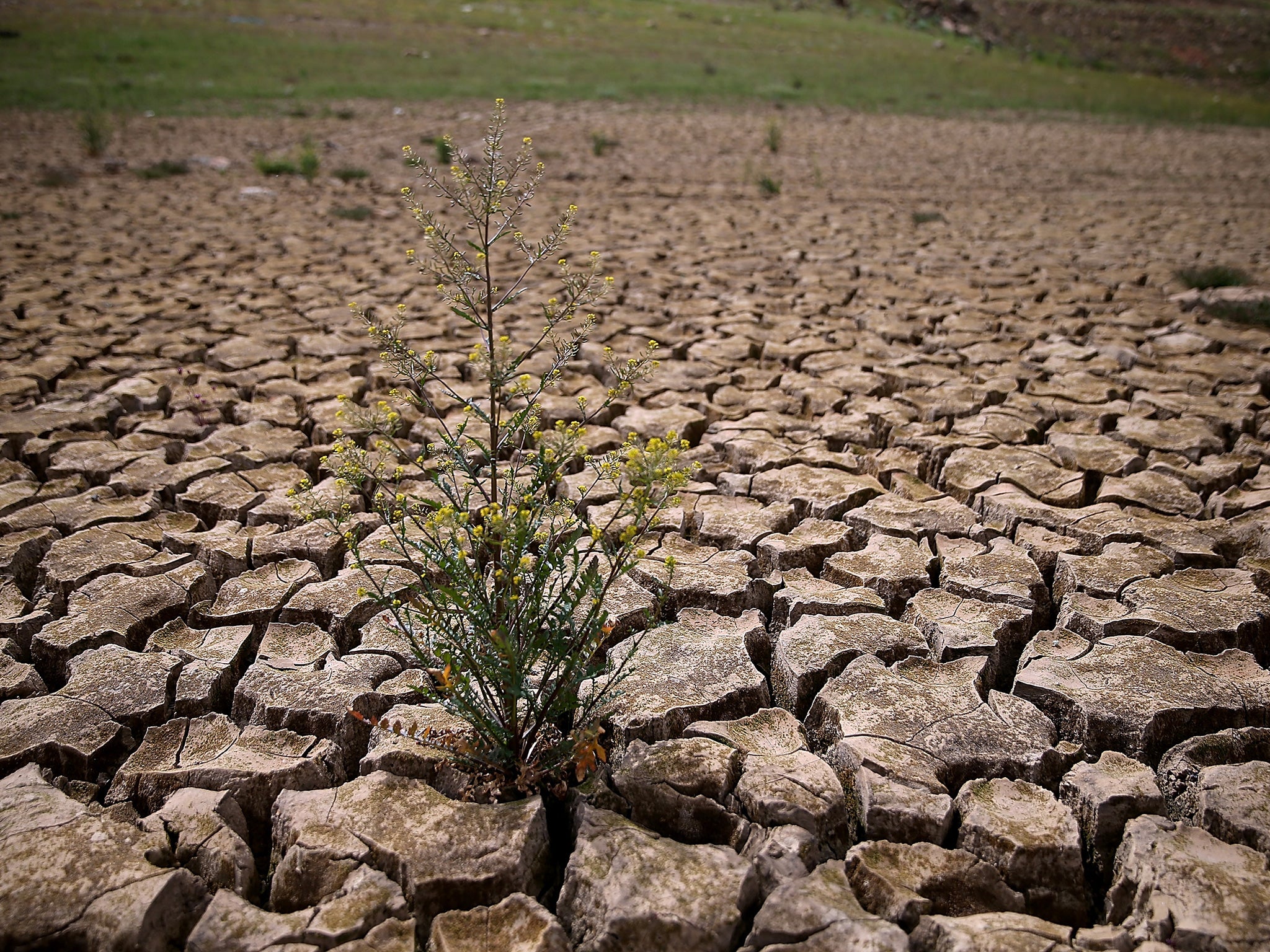Pope Francis calls for 'cultural revolution' to stop global destruction caused by climate change
The pontiff's anticipated encyclical called on rich countries to pay their 'social debt' to the poor and stop sacrificing the environment for the economy

Your support helps us to tell the story
From reproductive rights to climate change to Big Tech, The Independent is on the ground when the story is developing. Whether it's investigating the financials of Elon Musk's pro-Trump PAC or producing our latest documentary, 'The A Word', which shines a light on the American women fighting for reproductive rights, we know how important it is to parse out the facts from the messaging.
At such a critical moment in US history, we need reporters on the ground. Your donation allows us to keep sending journalists to speak to both sides of the story.
The Independent is trusted by Americans across the entire political spectrum. And unlike many other quality news outlets, we choose not to lock Americans out of our reporting and analysis with paywalls. We believe quality journalism should be available to everyone, paid for by those who can afford it.
Your support makes all the difference.The Pope has warned of the “unprecedented destruction” that could soon be wreaked by climate change in a worldwide decree calling for a “cultural revolution” to stop it.
Pope Francis said his encyclical, sent to 5,000 bishops around the world in five languages today, is “addressed to everyone” and not just the world’s 1.2 billion Catholics.
It called for humanity to urgently work together to protect “our common home” and abandon the “throwaway culture” dominating modern life.

“Regrettably, many efforts to seek concrete solutions to the environmental crisis have proved ineffective, not only because of powerful opposition but also because of a more general lack of interest,” the document said.
“If present trends continue, this century may well witness extraordinary climate change and an unprecedented destruction of ecosystems, with serious consequences for all of us.”
Pope Francis said the reliance on fossil fuels was aggravating the problem, alongside deforestation, and called for stringent policies to restrict greenhouse gas emissions and increase use of renewable energy.
“What kind of world do we want to leave to those who come after us, to children who are now growing up?” his decree asked.
“Never have we so hurt and mistreated our common home as we have in the last two hundred years… it is remarkable how weak international political responses have been.”

The encyclical said climate change was one of the “principal challenges” of our age and that short-sighted economical and commercial policies had caused the Earth to be “squeezed dry beyond every limit” for its natural resources.
The pontiff, who is known for his stance against global poverty after growing up horrified by the disparity between rich and poor in Buenos Aires, focused on the impact on developing countries.
He said farming in some African countries has been devastated by temperature rises combined with drought that he attributed to “huge consumption” by richer nations.
“The foreign debt of poor countries has become a way of controlling them, yet this is not the case where ecological debt is concerned,” the encyclical said.
“In different ways, developing countries, where the most important reserves of the biosphere are found, continue to fuel the development of richer countries at the cost of their own present and future."

The Pope argued there was an urgent need to a “bold cultural revolution” to tackle interlinked social and environmental crises by working to eliminate poverty and promote healthy development without disregarding the environmental impact.
His encyclical said “both the cry of the earth and the cry of the poor” must be heard by world leaders.
The document also linked climate change to young people, saying their hopes for a better future were thrown into doubt by climate change and poverty.
Pope Francis decreed that the human and natural environment are both suffering “degradation” that must be stopped.
“We are one single human family,” the encyclical said.
“There are no frontiers or barriers, political or social, behind which we can hide, still less is there room for the globalisation of indifference.”
It ended on a positive note, saying all was not lost and that humans, “while capable of the worst, are also capable of rising above themselves, choosing again what is good, and making a new start”.
The decree, called Laudato si (meaning "be praised") was leaked early in the Italian media after a draft was published by L’Espresso magazine.
It is the second-highest form of papal declaration and has been used in the past to set the Catholic Church’s stance on defining social issues including birth control, conflict and politics.
The pontiff has spoken before on the effects of climate change but the publication comes at a key time ahead of a UN meeting to decide new “sustainable development goals” in September and crucial international talks aimed at securing a new global climate deal in Paris later in the year.
A third of Catholics in England and Wales had already pledged to make they will make their lifestyles greener if the Pope made his expected stand on global warming, a poll by Cafod found.
The encyclical was expected spark controversy in the US where climate sceptics, including many Catholics, feel the Pope's views on the environment clash with their own doubts.
Additional reporting by agencies
Join our commenting forum
Join thought-provoking conversations, follow other Independent readers and see their replies
Comments